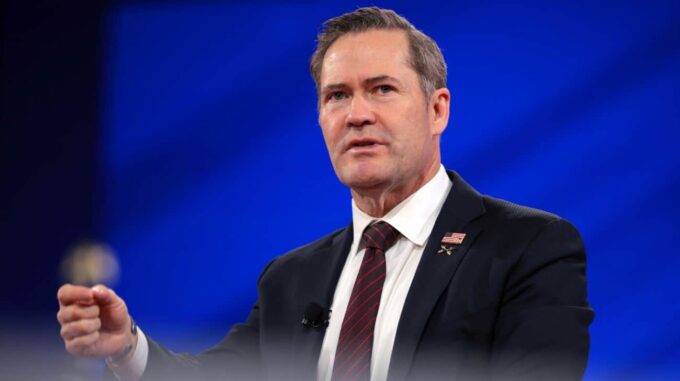US President Donald Trump officially confirmed the resignation of his National Security Advisor Michael Wolff, a news that had previously been circulated by American and international media

Furthermore, he announced his intention to nominate Wolff for an important position as the US Permanent Representative to the United Nations — a diplomatic center expected to play a key role in America's international relations. In his message on the social media platform Truth Social, Trump did not provide many details regarding the reasons for this personnel change but focused on the positive aspects of Wolff’s work as an advisor and expressed gratitude for his service and support of the country’s interests. Additionally, in a brief statement, the president mentioned that temporarily, Senator Marco Rubio will assume the responsibilities of the National Security Advisor — an ideal candidate for such a responsible role, given his experience managing diplomatic structures and his diplomatic stature in Congress. However, Trump did not provide an official motivation for Wolff’s dismissal. Legislative and media sources have speculated that the resignation may be related to recent scandals involving the advisor. Media and political analysts point out that Wolff’s departure is closely connected to an incident dubbed “Signal-gate.” This refers to the case when, in March of this year, Michael Wolff accidentally added the editor-in-chief of The Atlantic, Jeffrey Goldberg, to a closed group chat on the Signal messaging app. In this chat, discussions were held about US strikes on Yemen as part of operations against terrorists and efforts to support regional security. The accidental addition of a government official caused significant resonance due to potential breaches of confidential information and risks of leaking secret data. Michael Wolff himself acknowledged his mistake and took responsibility for the incident. Despite public bullying and critical statements from politicians and opponents, Trump remained loyal to his advisor in his comments, calling him “a good man” and emphasizing that he is “experienced and knowledgeable.” The president highlighted that Wolff learned the necessary lessons from the Signal-gate incident and is prepared to move forward, continuing his diplomatic career. Changes at the top levels of the US team indicate the Trump administration’s desire to refresh or modify approaches on issues of domestic security and international diplomacy. Wolff’s transition from National Security Advisor to UN envoy suggests a strategic decision to strengthen the US role on the global stage through mediation and diplomatic influence within the framework of the UN. Thus, this personnel move is significant because it demonstrates both internal political struggles and the administration’s efforts to elevate its international stature—albeit at the risk of high political and reputational costs. Despite the scandal, Michael Wolff remains one of the key representatives of the US on the global diplomatic scene, and his new status opens up new opportunities for involvement in shaping the country’s foreign policy.

